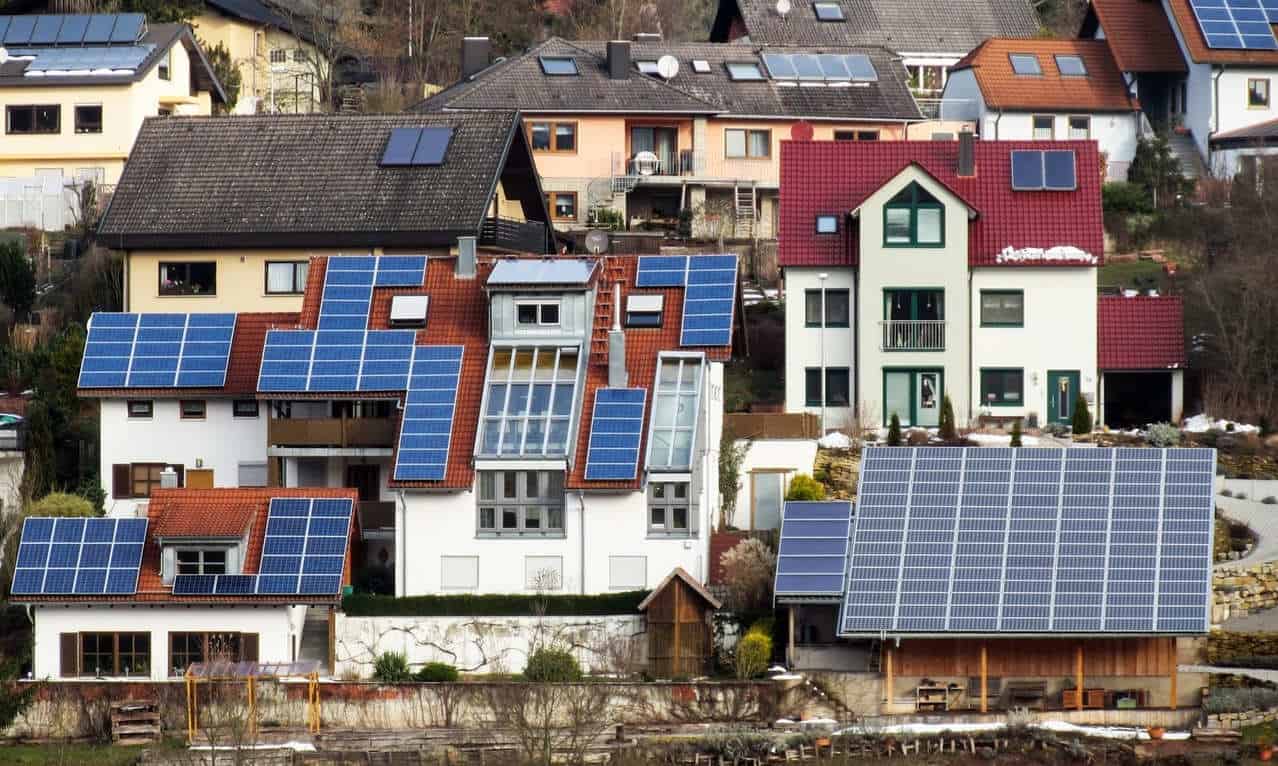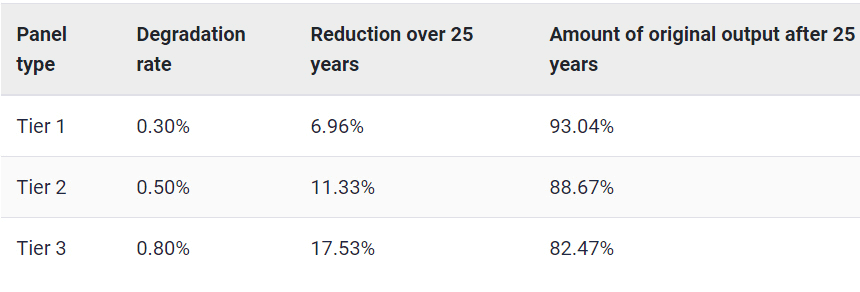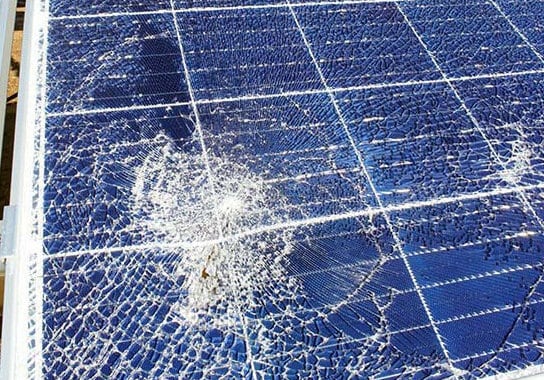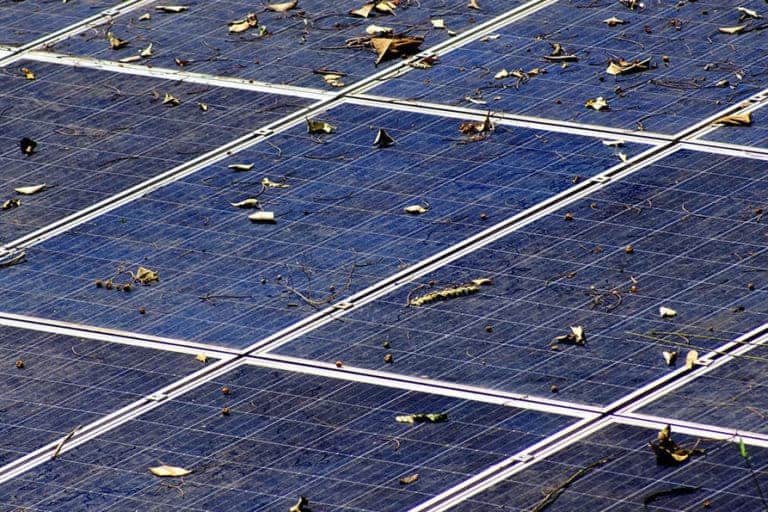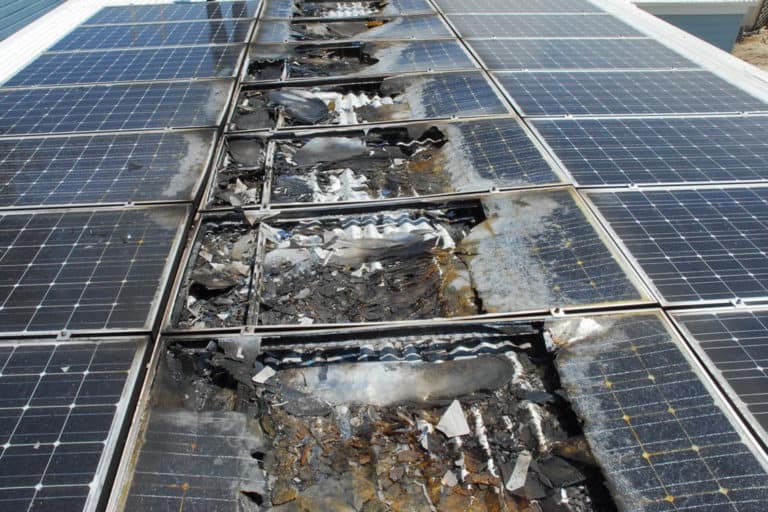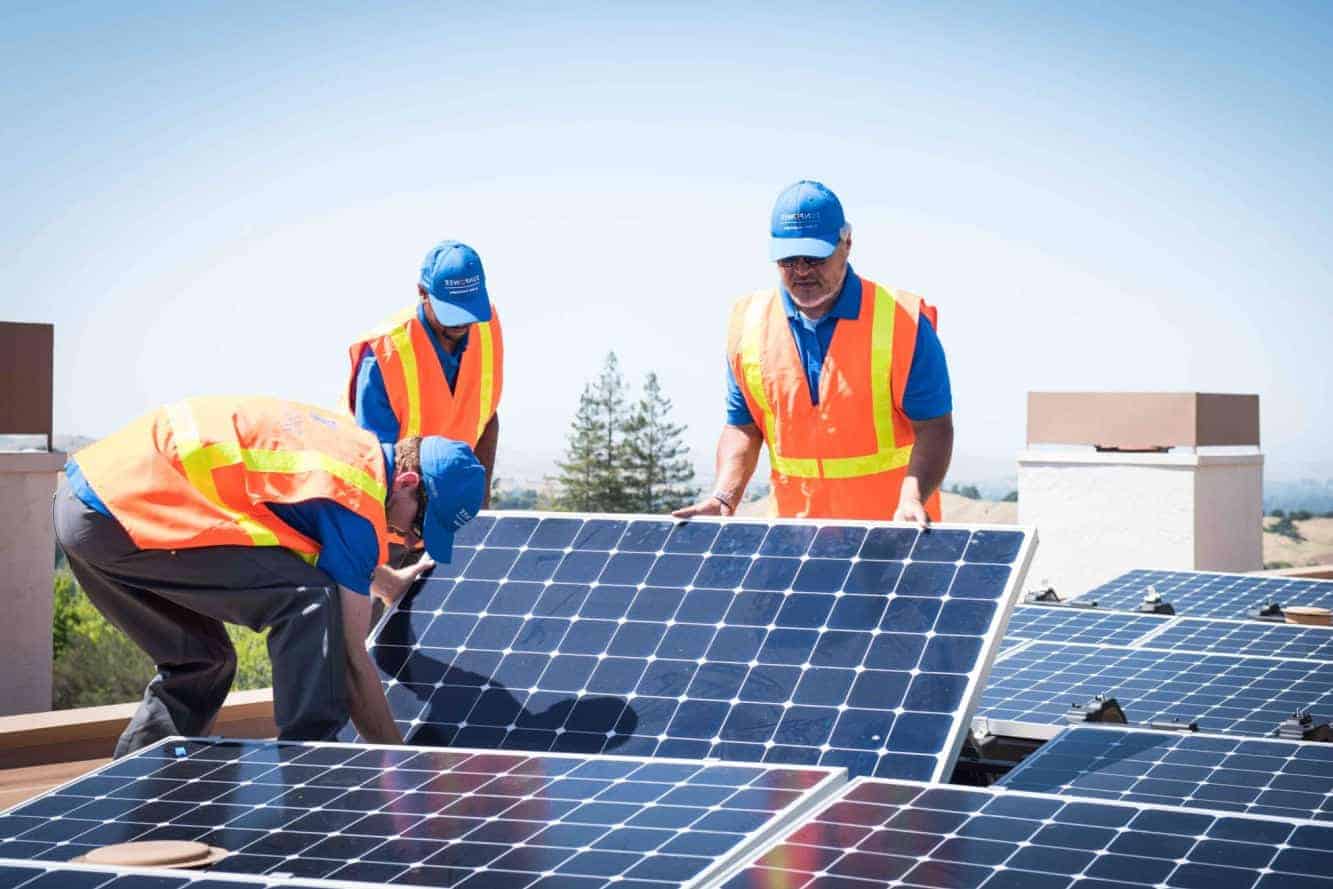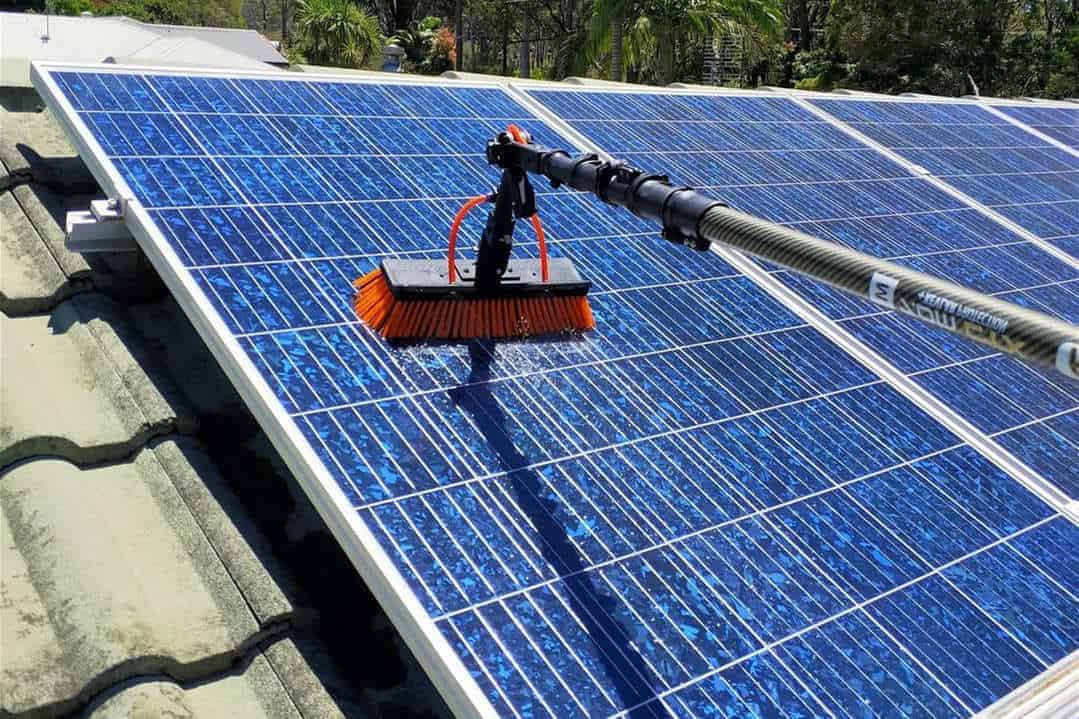If you’re reading this, you’re probably thinking of purchasing a home solar system, or you already have one and you want some advice on how to make it last as long as possible. After all, you make a significant outlay on getting solar panels, and it takes a few years of energy savings to pay them off.
After you’ve paid off your solar system, you can enjoy many years of free solar energy and you want to do your very best to prolong the life of your system for as long as you possibly can. This article answers the question of how long do solar panels last and gives you valuable and actionable tips to make your system last longer.
How long do solar panels last?
The standard life expectancy of a home solar panel is twenty-five years.
A standard solar panel warranty covers this expected twenty-five-year lifespan and allows for a 0.5% degradation in performance per year. This is very impressive because it means that even after using your solar panel for twenty-five years, you can expect a maximum reduction in performance of just 12 ½%.
Not all warranties are the same, and it’s important to know what you’re buying by carefully going through your contract and looking at what’s covered and how much degradation is allowed. This exercise gives you a good idea of the quality of solar panels you’re buying.
If manufacturers are prepared to offer such good warranties for twenty-five years, then it’s fair to assume that with good care, you can be confident of extending the life of your solar panels well beyond this twenty-five-year timeline.
Solar panels don’t have any moving parts, and the photovoltaic, PV cells they use to convert the sun’s energy into electricity will keep working for an extremely long time.
What can go wrong with solar panels
To get the best from our home solar system, we need to look at what can go wrong with solar panels. By understanding how solar panels can become damaged or impaired so that they don’t work at their optimum, we can develop systems and strategies to make them last longer. So here are some of the ways that solar panels can go wrong.
Cracks and breakages
A protective layer of glass covers home solar panels. Even though this covering is hardened tempered glass, cracks and breakages can damage the panel and impair its performance.
Leaks
Solar panels are designed to withstand the elements and are carefully sealed and waterproofed. However, flaws or cracks in individual panels can allow water in, affecting their performance.
Dirt, stains, and foreign objects
Clean and unmarked solar panels work best since if anything comes between the panel and sunlight, it will reduce the panel’s efficiency.
Dirt leaves and bird droppings are everyday items that damage and reduce the effectiveness of solar panels. It’s also essential to use mild detergents when cleaning solar panels and avoid washing them on sunny days. Solar panels can be damaged by strong chemicals and stained by detergents drying under direct sunlight.
Heat damage
Solar panels are tested at 77°F and given a heat efficiency rating. This rating is a percentage measure of how electricity production falls at temperatures above 77°F. Solar panels are designed to work in very hot places, but unusually hot temperatures and locations can impair their performance and ultimately damage the panel.
General wear and tear
Several everyday factors can damage your solar panels, whether it’s high winds, extreme weather, or just the wear and tear of careless servicing and cleaning.
9 Tips to last longer – extending the life of your solar panels
Now that we know the things that can go wrong with solar panels, we can start to look at what we can do to extend the life of our solar system actively. Here are nine actionable tips that will help you get the best use and extend the life of your solar system.
1) Buy good quality solar panels
Not all solar panels are equal. The best quality solar panels are manufactured to rigorous specifications giving them strength and durability. It’s crucial when you’re deciding on which solar panels to buy you take into account that top-quality panels last longer than cheaper options.
Paying a little more at the outset for a quality brand could give you substantial savings in the long term by extending the working life of your solar system. This video considers the variable lifespans of different brands of solar panels.
2) Buy the right kind of solar panel for your location
If you live in a hot place, you should look at the temperature coefficients of different solar panels and choose one rated to work best under extreme temperatures. This will increase your day-to-day electricity production and also allow you to get the most extended life from your solar panels.
If you live in a place with high wind or other extremes of weather, this may present a risk of damage to your solar panels, so it’s a good idea to consider buying rugged, high-quality panels that will last longer.
3) Use an experienced and well-established installation company
When you’re choosing the provider and installer of your solar system bear in mind that you are entering a long-term relationship. Unless you have the skills and confidence to take on all the cleaning and servicing of your solar system, then your provider will be looking after your panels for twenty-five years.
So, it’s well worth taking your time and choosing skilled and well-established installers with a good reputation, impressive and customer testimonials. A little extra expenditure on good care and maintenance can dramatically extend the life of your solar system.
4) Install your panels at the right angle
A good installer will know precisely what angle to tilt your solar panels at so that they receive the maximum exposure to sunlight. In the US, most panels pitch at a fairly sharp angle towards the south. This acute angle is good because it allows foreign objects to slide off the panel improving efficiency and stopping damage.
It’s important at the installation stage to check that your panels aren’t at such a low angle that they allow foreign objects to collect on the surface.
5) Perform regular checkups of your solar panels
You will need to clean and service your solar panels regularly, but before you do this, it’s a good idea to just take a look at them once in a while. If your system is on your roof or in an out-of-the-way position, be careful about your safety when checking. You could consider placing one of your CCTV cameras, if you have them, somewhere overlooking your panels, offering an easy way to check them.
But you should take a look at your panels regularly and check for any obstructions or damage. Dealing quickly with any issues will help you extend the life of your solar system.
6) Trim your trees!
If you have trees in your garden or the area around your solar panels, you should regularly check them. Firstly ensure that leaves and branches aren’t throwing shade over your solar system, reducing its efficiency, and secondly, that there is no risk of leaves and branches falling onto your solar array and breaking or cracking the panels.
Cut away any foliage and branches that are providing shade or threatening to damage your solar panels.
7) Service your solar panels regularly
An annual cleaning and service from your solar panel provider is an expense that is well justified to keep your system healthy and extend its life. Enlisting experts and performing regular checks yourself means that you’re doing everything in your power to monitor your solar system and keep it healthy.
8) Keep your solar panels clean (carefully)
Usually, rainfall is enough to clean the surface of your solar panels but it doesn’t do any harm, especially in drier months, to gently clean them using mild detergent and a soft sponge.
Be careful not to use abrasive cloths, and change your water regularly to remove grit. Do not use strong cleaning products because they may damage your solar panels. And if you’re climbing ladders, remember to be very careful.
9) Monitor the efficiency of your solar system
Another way to check your solar system is to look at the energy it’s putting into your inverter. If you keep a regular written performance record, you can understand how much energy your system should produce in different weather conditions. Then if there is any sudden reduction in power production, you can identify and deal with issues as they arise.
Following these nine simple steps will help you extend the life of your solar system and continue to enjoy free electricity from the sun for decades to come.
| STEPS FOR LONG-LASTING SOLAR SYSTEMS | |
| 1 | Buy good quality solar panels |
| 2 | Buy the right kind of solar panel for your location |
| 3 | Use an experienced well-established installation company |
| 4 | Install your panels at the right angle |
| 5 | Perform regular checkups of your solar panels |
| 6 | Trim your trees! |
| 7 | Service your solar panels regularly |
| 8 | Keep your solar panels clean |
| 9 | Monitor the efficiency of your solar system |
If you have any questions or comments about how long do solar panels last (9 tips to last longer) please share them with us here.

